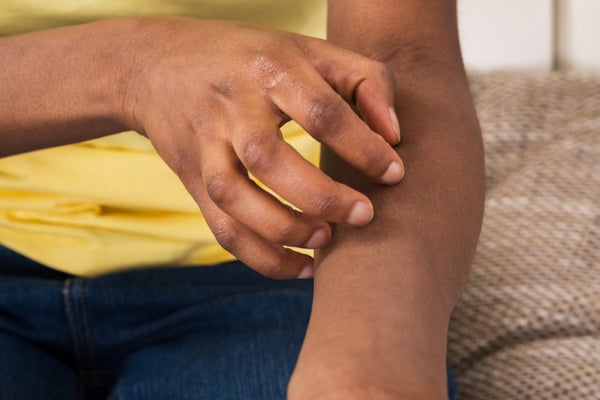- Get link
- X
- Other Apps
JUST IN
- Get link
- X
- Other Apps

Many people find relief with self-care measures such as moisturizers, gentle cleansers and lukewarm baths. Long-term relief requires identifying and treating the cause of itchy skin. Common treatments are medicated creams, moist dressings and anti-itch medicines taken by mouth.
Symptoms
Itchy skin can affect small areas, such as the scalp, an arm or a leg. Or it can cover the whole body. Itchy skin can occur without any other noticeable changes on the skin. Or it may come with:
When to see a doctor
See your health care provider or a skin disease specialist (dermatologist) if the itching:
Causes
Causes of itchy skin include:
Treatment for pruritus
is unique to each person and varies based on what caused your symptoms. Treatment could include:
Symptoms
Itchy skin can affect small areas, such as the scalp, an arm or a leg. Or it can cover the whole body. Itchy skin can occur without any other noticeable changes on the skin. Or it may come with:
- Inflamed skin
- Scratch marks
- Bumps, spots or blisters
- Dry, cracked skin
- Leathery or scaly patches
When to see a doctor
See your health care provider or a skin disease specialist (dermatologist) if the itching:
- Lasts more than two weeks and doesn't improve with self-care measures
- Is severe and distracts you from your daily routines or prevents you from sleeping
- Comes on suddenly and can't be easily explained
- Affects your whole body
- Comes with other symptoms
Causes
Causes of itchy skin include:
- Skin conditions. Examples include dry skin (xerosis), eczema (dermatitis), psoriasis, scabies, parasites, burns, scars, insect bites and hives.
- Internal diseases. Itching on the whole body might be a symptom of an underlying illness, such as liver disease, kidney disease, anemia, diabetes, thyroid problems and certain cancers.
- Nerve disorders. Examples include multiple sclerosis, pinched nerves and shingles (herpes zoster).
Treatment for pruritus
is unique to each person and varies based on what caused your symptoms. Treatment could include:
- Anti-itch creams: Topical corticosteroids may be helpful for small itchy areas. like those from bug bites.7 They also may relieve eczema symptoms.8
- Antibiotics: Bacterial skin infections may require prescription antibiotics.
Studies of over-the-counter drugs used to treat people with urticaria (an itchy rash known as hives) found certain products more effective than others in delivering symptom relief. The strongest over-the-counter itch pills included Xyzal (levocetirizine), but more research is needed.
- Using a cream, lotion or ointment on your skin.
- Taking medicine to stop itching.
- Stopping or changing a medicine that causes symptoms. Don’t stop taking a medicine until your provider tells you it’s safe to do so.
- Regularly using creams and lotions to keep your skin moisturized and prevent dry skin.
- Wearing sunscreen to prevent sunburns and damage from the sun’s UV rays.
- Using unscented or sensitive skin products like detergent and soaps to avoid skin irritation.
- Taking a warm (not hot) bath or shower to relieve itchiness.

Comments
Post a Comment
Let know your comments